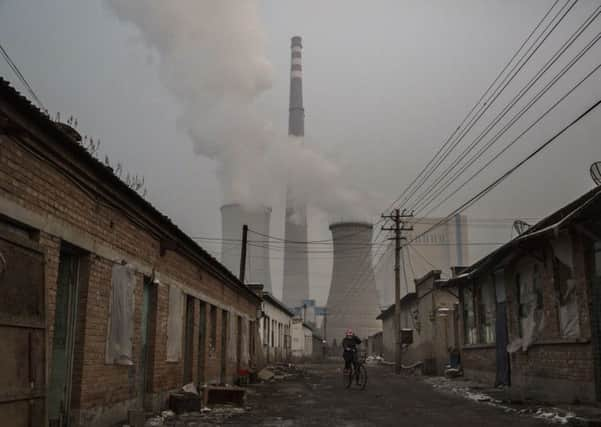Earth has reached '˜peak carbon', warns Scots climate expert


Professor James Curran, former chief executive of the Scottish Environment Protection Agency (Sepa), says analysis of global atmospheric concentrations of greenhouse gases suggest the planet’s ability to absorb ever-increasing emissions may have reached “peak carbon”.
If action is not taken to reverse the trend, he fears that damage to the environment could see carbon sinks turn into large-scale emitters in the next 30 or 40 years.
Advertisement
Hide AdAdvertisement
Hide Ad“I used to get criticised for scaring people about climate change, but I think there is a time and a place for that and a time for reassuring them that things can be done,” said Curran.
Theoretical projections produced for the United Nations Intergovernmental Panel on Climate Change had previously suggested the earth could continue to soak up carbon dioxide until around 2030, but would become a net emitter around the turn of the next century.
“One of the things I really wanted to do when I retired from Sepa was find out if you could detect this decline in the ability of the earth to soak up carbon dioxide. And sure enough, it turns out you can,” he said.
“By doing this study in 2016, when the peak occurred about ten years ago, I found there is just enough data to show that it’s very likely there has been a peak in the earth’s ability to soak up carbon dioxide and now it’s in decline.”
The scale of this reduction in capacity can be equated to adding another emitter on the scale of China into the global inventory, he says.
“We need to redouble our efforts as a global community to reduce carbon emissions as rapidly as possible.”
Failure to limit global warming will lead to mass extinctions, ocean acidification, melting ice caps, sea level rises and extreme weather – phenomena many countries are already getting a taste of.
Last year was the hottest on record globally, measuring 0.9C above the 20th-century average. And last month has just surpassed February’s briefly held record to become the warmest March ever, soaring 1.07C above the 100-year average for a calendar month.
The new report, co-authored with son Dr Sam Curran, appears in this month’s edition of the Royal Meteorological Society journal Weather.